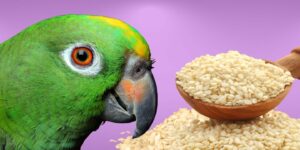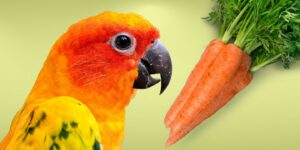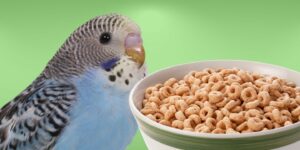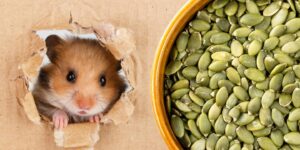Can rabbits eat cardboard? The short answer is yes, rabbits can eat cardboard. However, it should only be given to them in small amounts and as an occasional treat, not as a regular part of their diet.
Introduction
Why rabbits need a proper diet
Rabbits are herbivores, which means they primarily eat plant matter. In order for them to lead a happy and healthy life, it is essential to provide them with a balanced and fiber-rich diet that closely resembles the diet they would naturally have in the wild.
Understanding rabbits' natural diet
In the wild, rabbits eat a variety of grasses, leaves, and other vegetation. This diet provides them with the necessary nutrients and fiber to maintain their digestive health. Domestic rabbits should also be given a diet rich in fiber to ensure their overall health and well-being.
Types of cardboard
Corrugated cardboard
This type of cardboard is made up of multiple layers and is commonly used for packaging. It is generally safe for rabbits to chew on but should be given in moderation.
Paperboard
Paperboard is a single-layered cardboard that is often used for cereal boxes and other thin packaging. This type of cardboard is safe for rabbits to chew on, so long as it is free from any inks or adhesives.
Cardboard tubes
Cardboard tubes, such as toilet paper rolls, can be given to rabbits as a chew toy. They are a safe option as long as they have been thoroughly cleaned and are free from any harmful substances.
Feeding cardboard to rabbits
How to offer cardboard to rabbits
When offering cardboard to your rabbits, make sure it is clean and free from any inks, adhesives, or harmful substances. You can give them small pieces or larger sheets, but always monitor them to ensure they do not ingest too much.
Safe types of cardboard for rabbits
Rabbits should only be given plain, untreated cardboard that is free from any chemicals or other harmful substances. Avoid giving your rabbit any cardboard with printed designs or text, as the ink can be harmful.
How much cardboard is safe for rabbits
Cardboard should only be given to rabbits in small amounts and as an occasional treat.
Benefits of cardboard for rabbits
Dental health
Chewing on cardboard can help maintain healthy teeth for rabbits. This is because their teeth grow continuously, and they need to chew on tough and fibrous materials to keep them worn down.
Mental stimulation
Rabbits can find chewing on cardboard to be a fun and enriching activity, helping to prevent boredom that may lead to destructive behaviors.
Alternative to destructive chewing
Providing your rabbit with cardboard can offer them an alternative to chewing on less desirable items, such as furniture or electrical cords.
Potential hazards of cardboard consumption
Chemicals and adhesives in cardboard
Some cardboard may contain chemicals or adhesives that can be harmful to rabbits. Always ensure you provide your rabbit with safe, untreated cardboard.
Choking hazards
Rabbits may accidentally ingest large pieces of cardboard, leading to blockages in their digestive system. This can be life-threatening and requires immediate veterinary attention.
Overconsumption and malnutrition
Feeding your rabbit too much cardboard can lead to malnutrition, as it lacks the necessary nutrients found in fresh hay and vegetables.
Safe alternatives to cardboard for rabbits
Rabbit-safe chew toys
There are many chew toys available specifically designed for rabbits. These toys are made from safe materials and can offer excellent benefits for your rabbit's dental health and mental stimulation.
Branches and twigs from safe trees
Rabbits can also safely chew on branches and twigs from non-toxic trees, such as apple or willow. This can provide a natural and healthy alternative to cardboard.
Edible treats rich in fiber
You may also choose to offer your rabbit edible treats that are rich in fiber, such as dried herbs, hay-based treats, or dehydrated vegetables.
Signs of digestive problems in rabbits
Symptoms indicating a blockage
Symptoms of a digestive blockage in rabbits can include loss of appetite, lethargy, and painful, swollen stomachs. If you suspect your rabbit has a blockage, seek veterinary care as soon as possible.
When to seek veterinary care
If your rabbit exhibits any signs of digestive problems, it is essential to consult your veterinarian for guidance and treatment.
Tips for maintaining a healthy rabbit diet
Providing unlimited hay
Hay should be the primary component of your rabbit's diet. Offer them unlimited access to fresh, high-quality hay to meet their fiber requirements.
Offering a variety of leafy greens
Leafy greens should make up a significant portion of your rabbit's diet. Offer a mix of at least three different types of greens each day, such as kale, spinach, or collard greens.
Limiting pellets and high-sugar treats
Pellets should only make up a small portion of your rabbit's diet. Additionally, high-sugar treats, such as fruits, should be given sparingly and in small amounts.
Conclusion
In conclusion, rabbits can safely eat small amounts of cardboard as an occasional treat. However, it should not be a significant part of their diet. It's essential to provide your rabbit with a balanced diet rich in fiber, including fresh hay and vegetables, to maintain their overall health. Always be mindful of potential hazards and monitor your rabbit's health and well-being to ensure they live a happy, healthy life.











